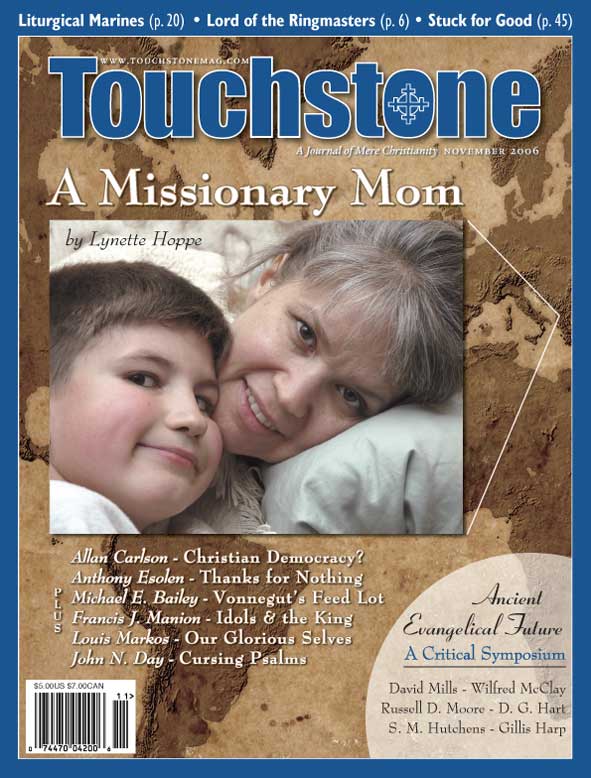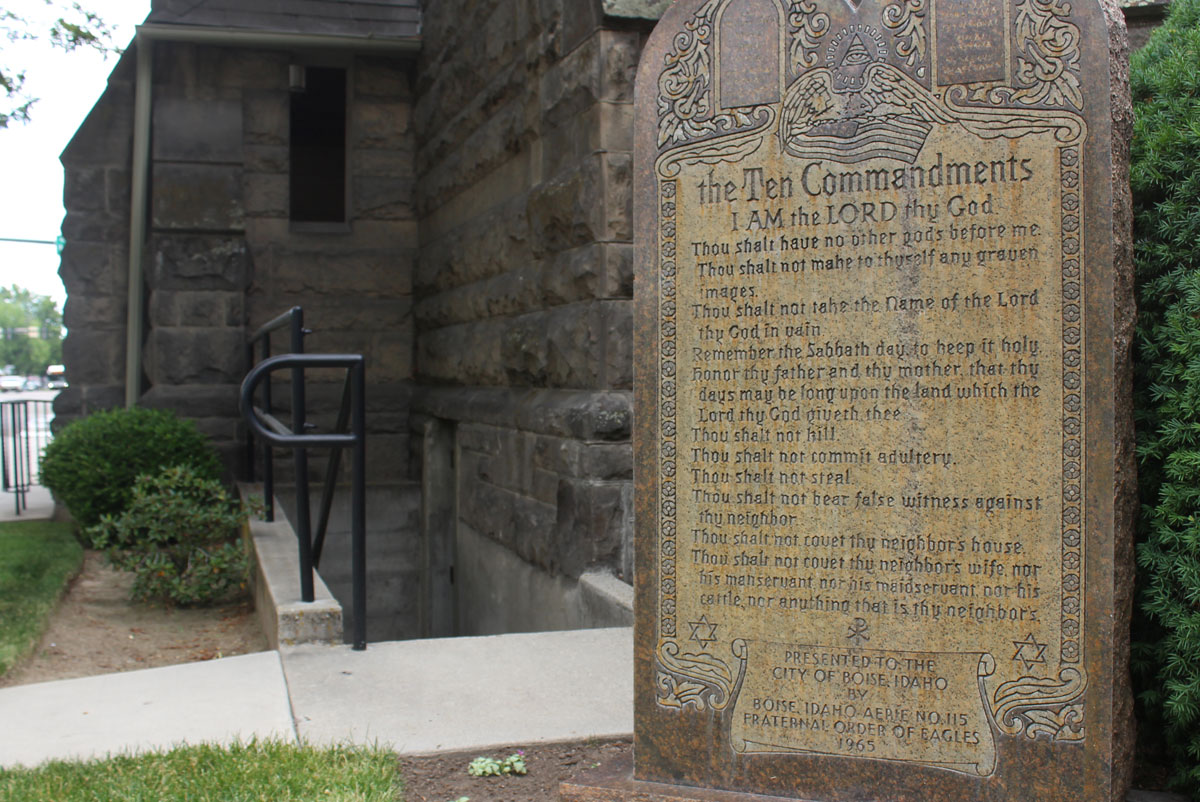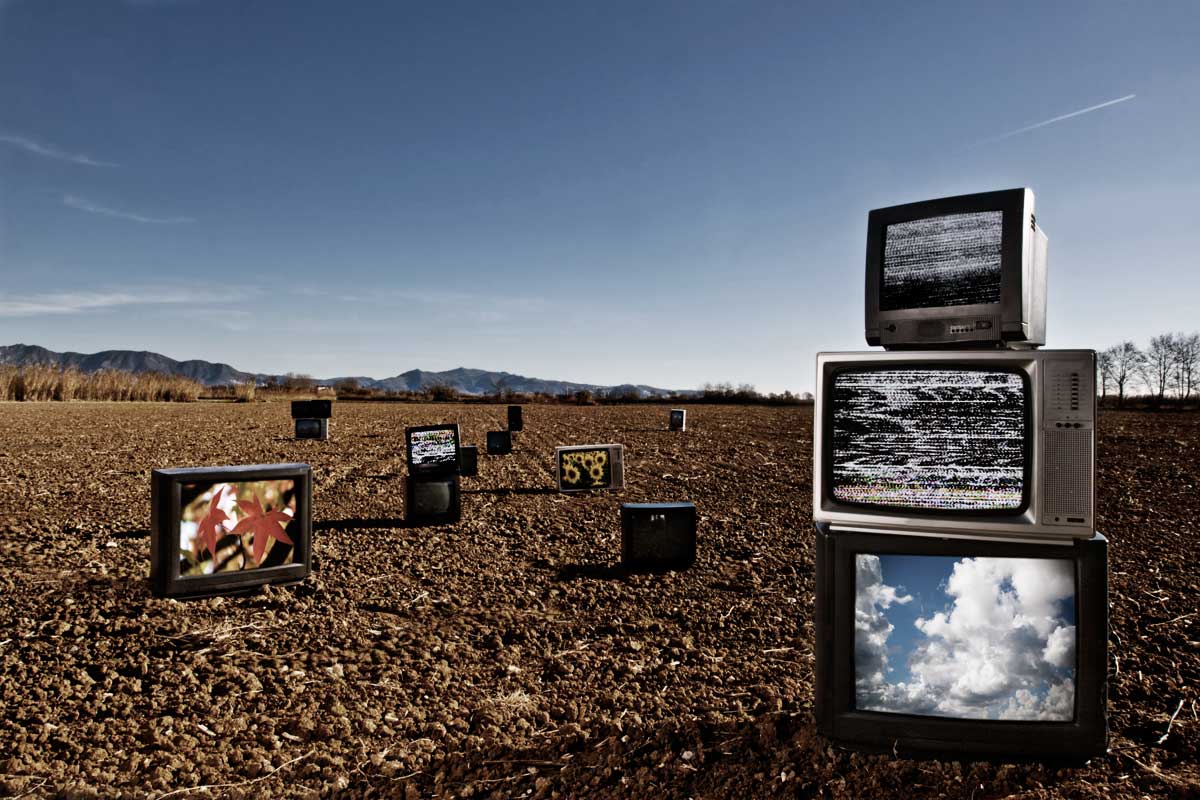Missionary Moms
Lynette Hoppe on the Advantages of Having Children in a Foreign Land
When I disembarked from the plane onto Albanian soil that day in March 1998, I was unprepared for the touch of icy wind and the lightly falling snow that greeted me. Clasped in a baby carrier at my breast was my three-and-a-half-month-old baby, Tristan, who was just recovering from an ear infection.
Expecting the first signs of emerging spring in Albania, I was not prepared for wintry weather. Thus, I had no warm coat or cap for Tristan, and had only a lightweight blanket at hand with which to wrap him. As we crossed the landing strip and headed for the terminal, a solicitous fellow passenger wound a scarf around Tristan’s head.
That first night in Albania was miserable. The temperatures were far below normal, and the dampness and chill in a room barely improved by an electric space heater made for little sleep. Anxious that Tristan not catch cold, I bundled him warmly, pulled a cap on his head, and settled him in the bed between my husband, Nathan, and myself. Tristan was fine that night, but I shed many tears.
Bridge Children
As I recall those first, uneasy days in Albania, I have to laugh a bit. My nervousness stemmed from a combination of new motherhood, uncertainty about health care available for an infant, the newness of Albania, and the miserable, never-ending rain and cold weather.
Nonetheless, despite my fears, I never questioned the rightness of our coming to Albania, nor the timing of our arrival. And I have never regretted raising a child in Albania, not only because Nathan, Tristan, and I are a missionary family, but also because I have found that children are an invaluable asset in missionary work.
Albanians love children, especially babies, and they are very demonstrative with their affection. Tristan, who is almost two years old now, has barely passed a day in Albania in which he has not been kissed, had his cheeks pinched, his legs shaken, or his nose tweaked. Being almost two, he most adamantly dislikes the pinching and prodding, but this seems to serve as little deterrent to his admirers.
Tristan has served as a bridge in so many relationships. Just by being a child, he invites a greeting and attracts attention. This has helped Nathan and me to meet so many more people than we might have otherwise, had we been childless. It has opened doors into our neighbors’ homes and has eased some of our awkwardness with the language. During the Kosovo crisis this past spring, when Nathan was making frequent visits to refugee homes, he often took Tristan, who served as a wonderful focal point and eased the language barrier.
Although my primary responsibilities as a missionary relate to being a homemaker and a mom, I do spend about fifteen hours each week working in the publications office of our church. A graphic designer by profession, I have been able to assist in producing calendars, brochures, logos, newsletters, and other printed materials needed by the church. I thoroughly enjoy this work, but it would be impossible for me to participate in it were it not for the help of a very fine Albanian woman, Shpresa, who has looked after Tristan since he was four months old.
Albanian Lesson
Raising a child in another culture can be of great benefit to the child. Both Nathan and I are the children of missionaries, and our worldview and life experiences are much broader because of our time spent in other parts of the world—I in Uganda and Nathan in Colombia. Although any new culture takes time to adjust to, Nathan and I have had few problems acclimating to life in Albania, despite the difficulties that pervade this poverty-stricken, chaotic country.
By living in such a place as Albania, Tristan has the possibility to learn that most of the world lives in much poorer conditions than in the States. He will learn that it is not the norm to have anything and everything one wants.
Furthermore, Tristan has learned to understand Albanian and, in fact, speaks more Albanian words than English words. He rattles off in Albanian all the animal names and noises (Albanian dogs say “hum, hum,” not “woof, woof,” or “bow, wow”). With no difficulties, Tristan will learn to speak Albanian fluently, unlike his parents, who are still struggling. His faculty in two languages will make it possible for him to learn a third or fourth language even more quickly, should he so desire later on in his life.
We have never hesitated to take Tristan with us anywhere, whether into people’s homes for visits or out of town on extended trips. For example, this past summer we made a trip into Kosovo to see how some of the families we helped in Albania were faring back home.
Knowing that many thousands of refugees were returning to Kosovo with their small children, despite fears over mines and instability, little food, and poor living conditions, we assumed that if they were willing to take their children into Kosovo, we had no reason to hesitate either. And, as we suspected, the situation proved no hardship for us with a small child.
We have taken Tristan with us on trips into some of the smaller mountain villages of Albania as well, and these have proven to be wonderful learning experiences for him. Although he has learned from books about many farm animals and tractors, by traveling in the countryside he had the opportunity to see these things firsthand for himself.
Hearing him call out the names of the animals as he spotted them (mostly in Albanian) gave us no end of entertainment. Although it is unlikely that Tristan will remember any of these experiences, he will grow up seeing pictures of himself in various parts of Albania.
The Family Church
This past July, Tristan and I also spent two weeks at a university girls’ camp held in a lovely monastery about an hour’s drive from Tirana.
While I assisted the girls with their craft projects, Tristan spent his time running around in the grass, chasing the monastery’s flock of sheep, eating ripe plums directly from the tree, and passing the hottest part of the afternoon cooling himself in a small tub of water with his buddy, Paul Veronis. The girls thoroughly enjoyed having him around, despite the fact that he was reluctant to spend much time with any of them, and Tristan was relieved of the monotony of being apartment-bound in a dusty city.
From his very first Sunday in Albania, we have taken Tristan to church. During our first service, Nathan held a sleeping Tristan throughout the liturgy, which scandalized the women, who expressed vehemently that the care of babies should be in the hands of the mothers. After observing Nathan’s effective care over some months, however, the women ceased to disapprove.
We want Tristan to grow up loving our Lord, participating in the services of the church, and knowing that he is always welcome in church. Nevertheless, having him with us in the service is very challenging, and with each new stage of his life, we have had to make adjustments in how we handle him during this time. We persist, though, because we want to demonstrate to the Albanians that church is for the family.
Raising a child in a politically unstable country, such as Albania, does present its challenges. Last August, after receiving warnings from the American embassy in Tirana and learning that the entire embassy was being evacuated because of threats directed against it, Tristan and I returned to the States for about five weeks. Had we not had a child, I probably would not have returned to the States.
Although it appears that there have been no obvious ramifications from those threats, the possibility of a political crisis or some other threat hangs like a permanent dark cloud over Albania. Each year seems to usher in some new crisis. This year it was the enormous flood of refugees from Kosovo and a fear that the war would spill over onto Albanian soil.
Although we choose not to live in fear of the on-going political chaos and rampant lawlessness, we still have to be careful, particularly at night. In the past year and a half, four of the church’s vehicles have been stolen, three of them at gunpoint. We never travel out of town at night, and we avoid traveling in the more isolated regions of Albania.
Fortunately, it does appear that the security situation in Tirana (other than for vehicles) is improving slowly. When we first arrived a year and a half ago, few people took the traditional evening walk, or went out after dark. Now in the evenings, the main boulevard is crowded with promenaders, and the dozens of coffee shops scattered throughout the city are buzzing with conversation and laughter.
Going with God
Despite the security problems, I have observed, paradoxically, that the realm of the mother and child is almost sacred in Albania. In the Albanian Code of Lek, a centuries-old code of behavior, which is still honored by most, the women and children are to be protected.
Thus, in my walking about town with my child, I have that odd sense of being both the protector of my child and of being protected because I have a child. This has been something of a comfort to me in this troubled land, where anything can and everything does happen.
As a family, we are in the beginning stages of our life as missionaries. If God allows us and if the need exists, we hope to spend many years serving our Lord in foreign parts, whether in Albania or elsewhere. We have no qualms about taking our children with us anywhere that God may lead us. Having Tristan with us in Albania has been a joy and a great benefit, and we look forward to welcoming our second child next April.
subscription options
Order
Print/Online Subscription

Get six issues (one year) of Touchstone PLUS full online access including pdf downloads for only $39.95. That's only $3.34 per month!
Order
Online Only
Subscription

Get a one-year full-access subscription to the Touchstone online archives for only $19.95. That's only $1.66 per month!
bulk subscriptions
Order Touchstone subscriptions in bulk and save $10 per sub! Each subscription includes 6 issues of Touchstone plus full online access to touchstonemag.com—including archives, videos, and pdf downloads of recent issues for only $29.95 each! Great for churches or study groups.
Transactions will be processed on a secure server.
more on Culture from the online archives
more from the online archives
calling all readers
Please Donate
"There are magazines worth reading but few worth saving . . . Touchstone is just such a magazine."
—Alice von Hildebrand
"Here we do not concede one square millimeter of territory to falsehood, folly, contemporary sentimentality, or fashion. We speak the truth, and let God be our judge. . . . Touchstone is the one committedly Christian conservative journal."
—Anthony Esolen, Touchstone senior editor












